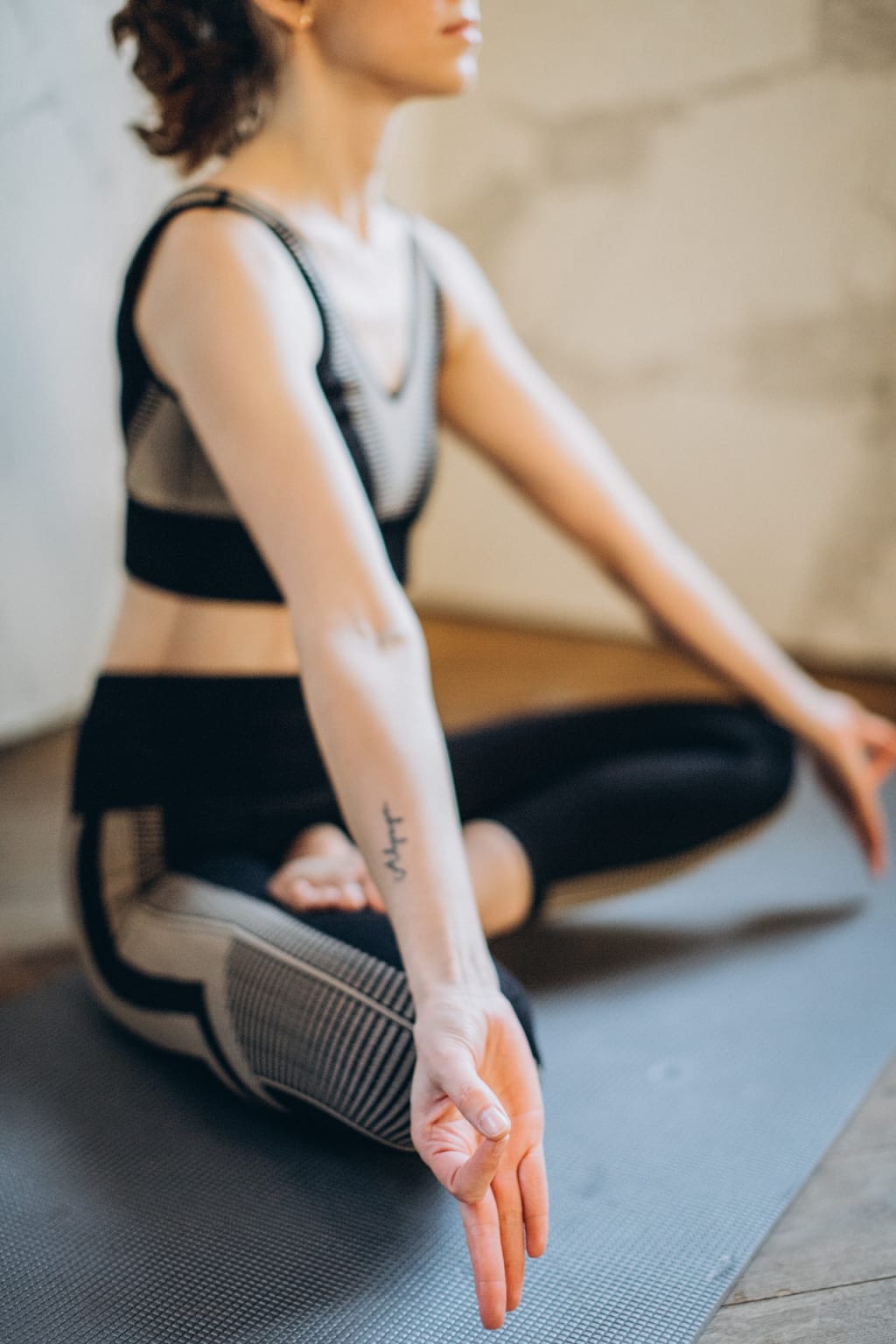The Benefits of Meditation for Reducing Stress and Improving Mental Health
The Art of Inner Peace: How Meditation Can Transform Your Mind and Body

Meditation has been practiced for centuries and has gained popularity in recent years as a way to reduce stress, improve mental health, and promote overall wellness. Meditation is a powerful tool that can transform your mind and body, and it doesn't require any special equipment or location. In this article, we will explore the benefits of meditation and how it can help you find inner peace and improve your quality of life.
What is Meditation?
Meditation is a practice that involves focusing your mind on a particular object, thought, or activity to achieve a state of mental and emotional calmness. Meditation has been practiced in various cultures and traditions for thousands of years and has been scientifically proven to offer a range of health benefits.
The Benefits of Meditation
Reduces Stress and Anxiety: Meditation is an effective way to reduce stress and anxiety by helping to lower the levels of cortisol, the hormone associated with stress.
Improves Mental Health: Meditation can improve mental health by reducing symptoms of depression, anxiety, and other mental health conditions.
Boosts Immune System: Meditation has been shown to boost the immune system, which can help you fight off infections and illnesses.
Improves Sleep: Meditation can help you sleep better by reducing stress and promoting relaxation.
Increases Focus and Concentration: Meditation can help you improve your focus and concentration by training your mind to stay focused on a particular task or activity.
How to Practice Meditation
Find a Quiet Place: Find a quiet and peaceful place where you can meditate without any distractions.
Get Comfortable: Sit in a comfortable position with your back straight and your feet flat on the ground.
Focus on Your Breath: Close your eyes and focus on your breath. Take deep, slow breaths and focus your attention on your breathing.
Be Patient: Don't worry if your mind starts to wander. Simply bring your attention back to your breath and continue meditating.
Practice Daily: To get the most benefits from meditation, it's important to practice daily.
Meditation and Its Physical Benefits
Apart from the mental and emotional benefits of meditation, there are also many physical benefits associated with regular meditation practice. These benefits include:
Reduced Blood Pressure: High blood pressure can lead to various health problems, including heart disease and stroke. Several studies have shown that regular meditation can help lower blood pressure.
Improved Immune System: Meditation has been shown to boost the immune system and increase the activity of natural killer cells, which are responsible for fighting off viruses and cancer cells.
Decreased Inflammation: Chronic inflammation is linked to many health problems, including arthritis, diabetes, and heart disease. Studies have shown that regular meditation can help reduce inflammation in the body.
Better Sleep: Poor sleep can lead to various health problems, including obesity, diabetes, and depression. Meditation has been shown to improve sleep quality and increase melatonin levels, which can help regulate sleep patterns.
Reduced Pain: Meditation has been shown to reduce the perception of pain and increase pain tolerance, making it a useful tool for managing chronic pain.
Improved Digestion: Stress can interfere with digestion and lead to various gastrointestinal problems. Meditation has been shown to improve digestion and reduce symptoms of irritable bowel syndrome.
Meditation is a powerful tool for improving both mental and physical health. By taking the time to cultivate a regular meditation practice, you can experience the many benefits of this ancient practice and improve your overall well-being.
Frequently Asked Questions (FAQs)
Q: How long should I meditate for?
A: The length of time you should meditate for depends on your level of experience and personal preferences. Beginners may find it helpful to start with just a few minutes of meditation each day and gradually increase the duration over time. Some people meditate for as little as five minutes a day, while others meditate for an hour or more.
Q: What is the best time of day to meditate?
A: The best time of day to meditate is the time that works best for you. Many people find it helpful to meditate first thing in the morning, while others prefer to meditate in the evening before bed. Experiment with different times of day and find what works best for you.
Q: Do I need any special equipment to meditate?
A: You don't need any special equipment to meditate. All you need is a quiet space where you can sit comfortably and focus on your breath or a mantra. Some people find it helpful to use a meditation cushion or bench to help maintain good posture, but these are not essential.
Q: Can meditation help with anxiety and depression?
A: Yes, meditation can be a helpful tool for managing anxiety and depression. Studies have shown that regular meditation can reduce symptoms of anxiety and depression and improve overall mental health. However, it's important to note that meditation should not be used as a substitute for professional medical advice or treatment. If you are experiencing symptoms of anxiety or depression, it's important to seek help from a qualified mental health professional.
Q: Is meditation a religious practice?
A: While meditation has roots in various spiritual and religious traditions, it is not inherently a religious practice. Many people practice meditation as a secular practice for improving mental and physical health.
In conclusion, meditation is a powerful tool that can transform your mind and body. By reducing stress, improving mental health, and promoting overall wellness, meditation can help you find inner peace and improve your quality of life. So why not give it a try? Find a quiet place, get comfortable, focus on your breath, and be patient. With daily practice, you can experience the many benefits of meditation.





Comments
There are no comments for this story
Be the first to respond and start the conversation.